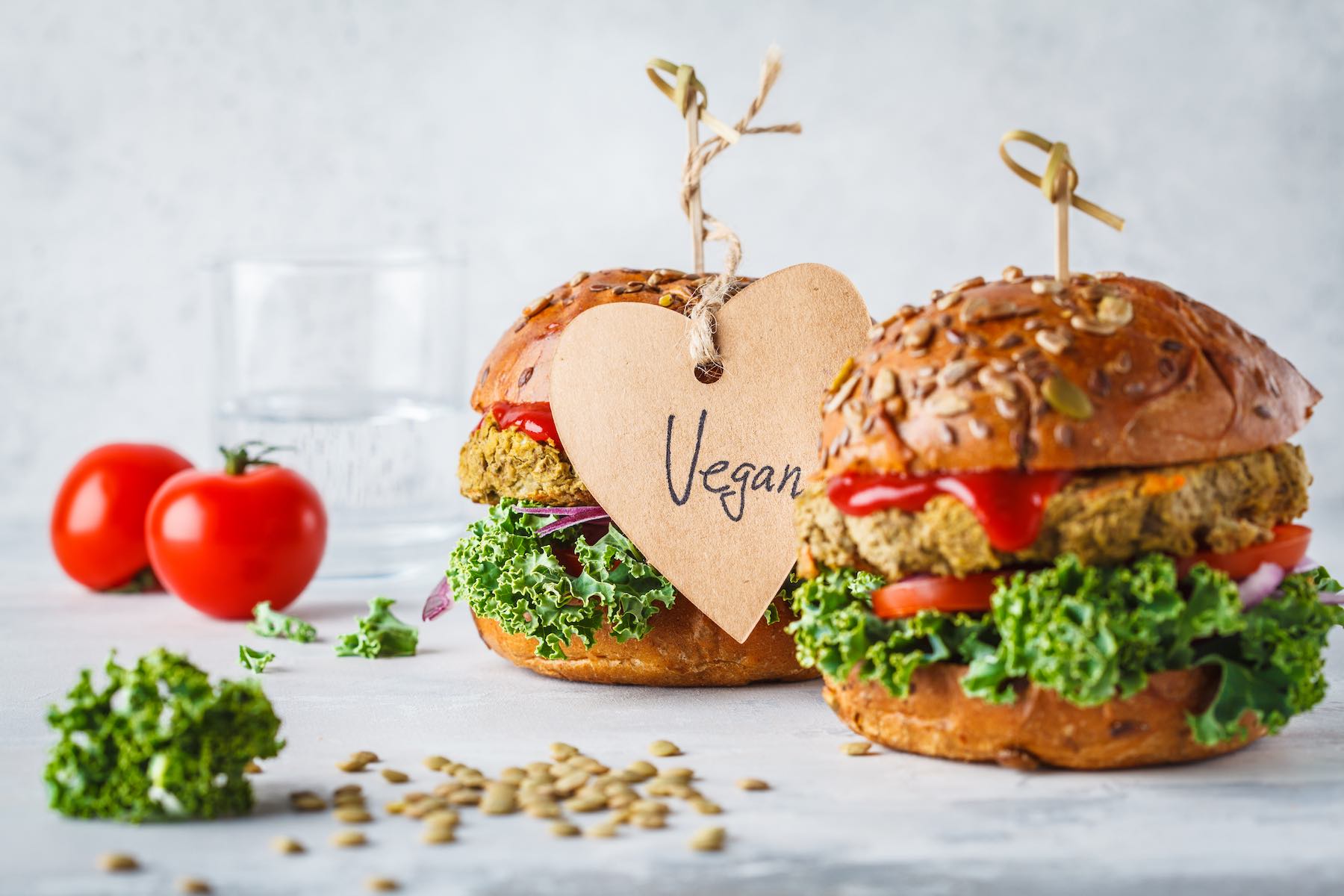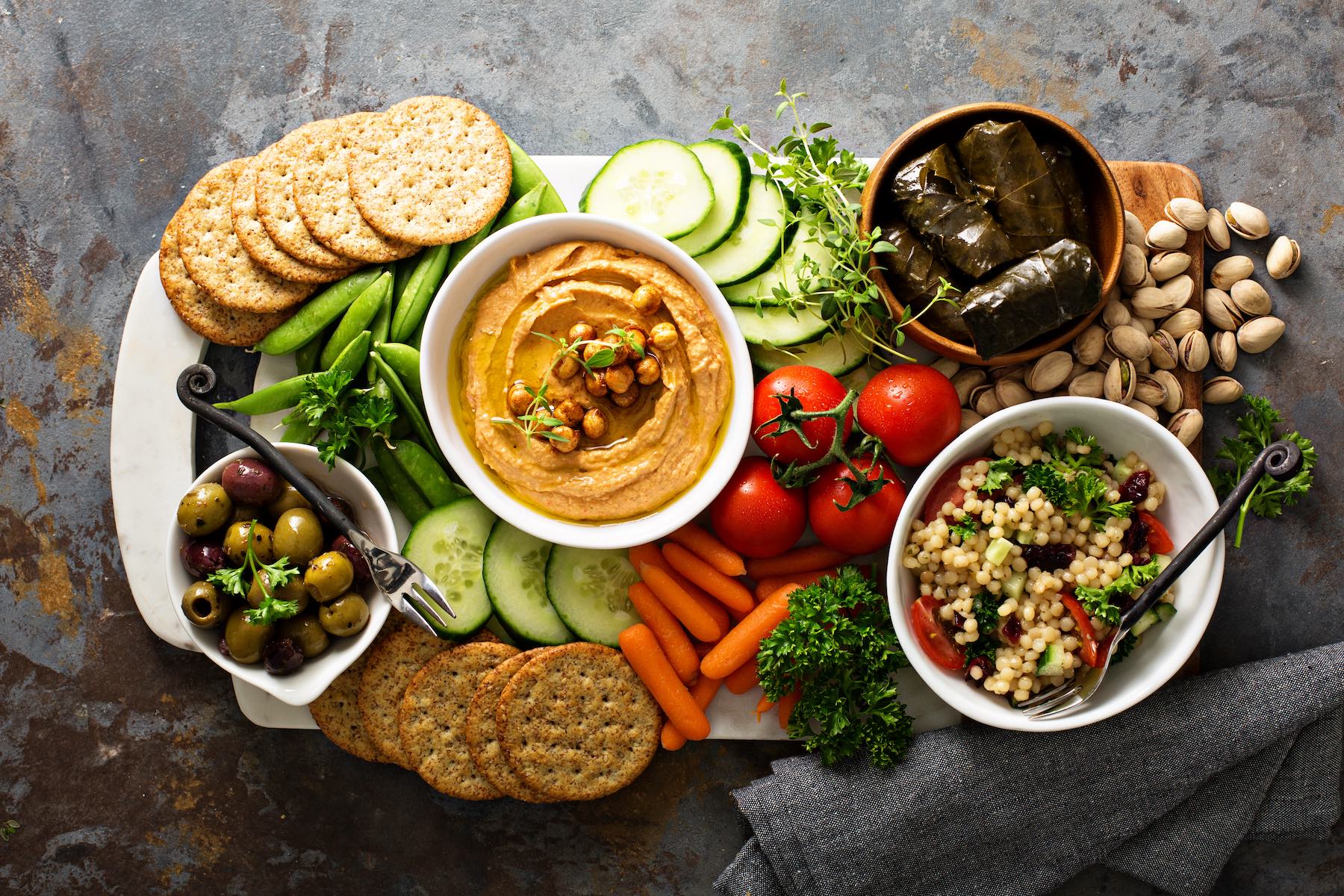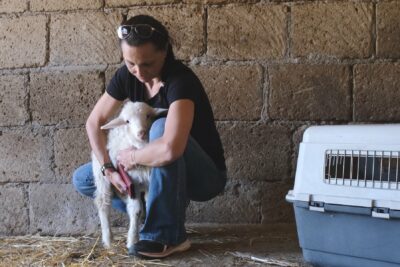Going vegan can be a challenging but fulfilling experience. We understand it can feel overwhelming at first, but with some helpful tips, you can make the transition to a vegan lifestyle easier and hopefully enjoy it a lot too! Why not give it a go this Easter?
Easter is an important period for many cultures and in some religions, people already cut out meat for religious reasons, so it’s a good period to give veganism an opportunity to change your life for the better.
If you wonder why you should give veganism a go, we have different challenges for the planet, other animals, social justice, or to give your health a boost. Steph, GenV’s Italy Campaign Manager, has been to a lamb slaughterhouse recently and told us about the experience here. Giving veganism a go is sparing these animals from pain and suffering.
Our Five Tips To Help You Go Vegan at Easter

1. Best Things in Life Start With Your ‘Why’ (and a Little Planning)
Start at the beginning by knowing why you’re doing it (the animals, the environment, other people, or your health), and then, make a plan. You’ll need to know what to eat, what to avoid, and where to find vegan options. Make a list of vegan foods that you like and those that you want to try. You can also look for vegan recipes online or in cookbooks to get inspiration. Plan your food ahead of time, and make sure that you have all the ingredients you need. Soon, you’ll master the planning and things will get a lot easier.
Don’t forget to include a variety of fruits, vegetables, grains, and legumes. These are the building blocks of a healthy vegan diet. You can also add some vegan protein sources, such as tofu, tempeh, or seitan, to your meals.
Oh! Also, don’t forget your B12 – we recommend a supplement to be on the safe side – and to check with a doctor if you feel like you need to because of your particular health reasons.
2. Go on a Quest for Vegan Alternatives
Sometimes it is a bit tricky to find alternatives to the animal products you used to eat. However, there are many vegan alternatives available, and with a bit of research, you can find plant-based versions of your favorite foods. For example, instead of dairy milk, you can try hemp, coconut, almond, soy, or oat milk. Instead of meat, you can try tofu, jackfruit, tempeh, or seitan. Instead of eggs, you can use flax, a smashed banana, or chia seeds to bind your recipes, or scramble tofu. There are also plenty of recipes to substitute fish in every meal and many vegan companies make faux fish to ensure your meals are a true delight.
When it comes to Easter, you can find vegan alternatives to traditional Easter foods like hot cross buns, chocolate eggs, and Easter cakes. Look for vegan options at your local grocery store, or try making your own vegan versions of these meals and treats. Vegan chocolate should be easy enough to find!

3. Eating Out: Even if You Don’t Live in a Big City, It’s Not Impossible
Leaving the comfort of your house and going out for a meal, can sometimes be a challenge when you’re vegan and you don’t live in a big city, but we promise you: it’s not impossible. So many restaurants now offer vegan options, and many have full vegan menus or can make vegan substitutions on request. Before you go out to eat, check the restaurant’s menu online or call ahead to ask about vegan options.
Something that has helped a lot of the members of our team when veganism wasn’t as popular as it is now, is to try looking for vegan-friendly cuisines like Indian or Thai. You can also ask the server for recommendations or for the chef to prepare a vegan version of a dish.
4. Master Label-Reading and Get Some Help From Apps
Yes, this is a bit boring, but it’s mandatory for anyone who wants to go vegan. So much so, it even turned into a bit of a vegan meme.”How to spot the vegan at the supermarket? It’ll be the one turning every package they see.”
But, you need to know if there are any animal-based ingredients or if those products are tested on animals. Most common animal-based products to watch out for include eggs, honey, milk (and derivatives) and gelatin. Also, be aware of additives like carmine, which is made from crushed bugs.
Food companies have to be law compliant and always include a full list of ingredients, which, honestly, makes it easier to determine if a product is vegan. Although some ingredients can be tricky, it’s important to do your research and learn about the most common animal-derived additives.
We also recommend you download very useful apps like ABILLION, with thousands of recommendations of new vegan products everyday, and Happy Cow where you can find any restaurant with vegan options next to you. Amazing, right?

5. Please, Be Kind To Yourself
Going vegan in a “carnist” society is not easy and it’s okay to make mistakes along the way. Don’t beat yourself up if you slip up and accidentally eat something non-vegan or give in to temptation. Use it as a learning experience and keep going. Remember why you decided to go vegan in the first place, and stay focused on your goals. The same applies to dealing with others: don’t let other people mock you for trying veganism or let other vegans make you feel inferior because you are not 100% perfect (spoiler: they’re not either! No one is perfectly vegan in this imperfect world.) Do what you can today, and recognize it’s a big step towards a more compassionate and kind lifestyle. Basically what Easter is all about right?
Going vegan this Easter may seem intimidating, but with these tips and the different vegan challenges you can find on our page for free, you can make the transition easier and more enjoyable. Remember to start with a plan, learn to read labels, find vegan alternatives, be prepared when eating out, and don’t be too hard on yourself.
Remember to follow our social media channels for more tips on going vegan and to listen to the stories of different people across the world and their experiences. Happy Easter!



